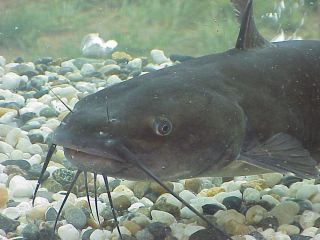Relationships
Catfish and Secrets
Some things are best left unsaid, especially in online relationships.
Posted June 24, 2013

Although I love MTV’s Catfish program, I have come to realize it is ruining relationships. In every episode, two people who have fostered an online romance but never met in person are brought together. Some of these relationships have existed happily for years. The partners communicate with each other several times a day and on an intimate level. The “catch” is that one of them has been impersonating someone they’re not, and so the victim is shocked to discover the truth when they meet face-to-face. The perpetrators have usually lied about one major characteristic such as their gender, weight, sexual orientation, or job. If this sounds familiar, the case of professional football player, Manti Te’o, is an example of catfishing. I admittedly tune in to watch these episodes week after week, hoping that one of the relationships will work out, but none of them do.
So maybe secrets, especially in the case of catfish, are good for relationships. Scientists have known for a long time that some degree of secrecy exists in a majority of satisfying, long-term unions. That is, partners typically do not disclose everything to one another, particularly if they want the relationship to last.
With respect to catfish, one point seems obvious: when they keep their secret, the relationship flourishes; when they tell the truth, the relationship dies. Without MTV’s intervention, such relationships might not experience such devastating conclusions, or would they? The partners seem to obtain many benefits from their relationship, which have been documented on the show. For example, individuals with stigmatized identities (e.g., transgender) and significant hardships (e.g., financial, health) find companionship and support with their catfish partner. These relationships aren’t unlike face-to-face relationships in that they contain intimacy, romance, and even sex. But from the victim’s standpoint, are these benefits grossly overshadowed by feelings of betrayal?

I argue that everyone is a catfish to some extent. In the early phases of a romantic relationship, partners typically present a best self or embellish certain qualities to appear more attractive to their prospective mates. Catfish deception may also occur in long-term relationships such as when individuals present a false self to conceal infidelity, or enter a heterosexual marriage to disguise a same-sex orientation. The point is that most people, at some point in time, have appeared as someone they are not.

I like the term catfish because of its origin. It was first coined in a documentary film by the same name (spoiler alert!) when the film’s star, Nev, who now hosts the MTV show, discovered that he had been catfished by an older, married woman who was posing online as her younger, single daughter. At the end of the film, Nev interviews the woman’s husband to unearth whether he knew of his wife’s alternate identity. The husband responds with a story that suggests he neither knew, nor wishes to know, and that he even approves of his wife’s secrecy. His story goes like this…when sailors used to ship live codfish from Alaska to China, the fish would turn mushy in their crates from staying still too long. One day, a sailor got the idea to put catfish in the crates to “keep the cod agile” during the trip. The husband then goes on to state that in life, some people are catfish. They keep things lively.
From a researcher’s standpoint, we know that happy and long-lasting relationships result from the interplay of predictability and freshness. That is, individuals want to feel secure and accepted by their partner, but they need novelty and excitement, too. The most fulfilling relationships are ones in which our partners keep us guessing, to at least some degree. So as the second season of Catfish begins, I will tune in each week, hoping to see a relationship succeed. And if none do, I guess there will be reason to tune in next season.
If you or someone you know has experienced catfishing, as a victim or initiator, please consider volunteering for my study. I hope my research will provide greater insight about this important phenomenon. If you would like to volunteer, you can access the study via this link: http://csusb.az1.qualtrics.com/jfe/form/SV_3OTQ65oeTKpKQst


